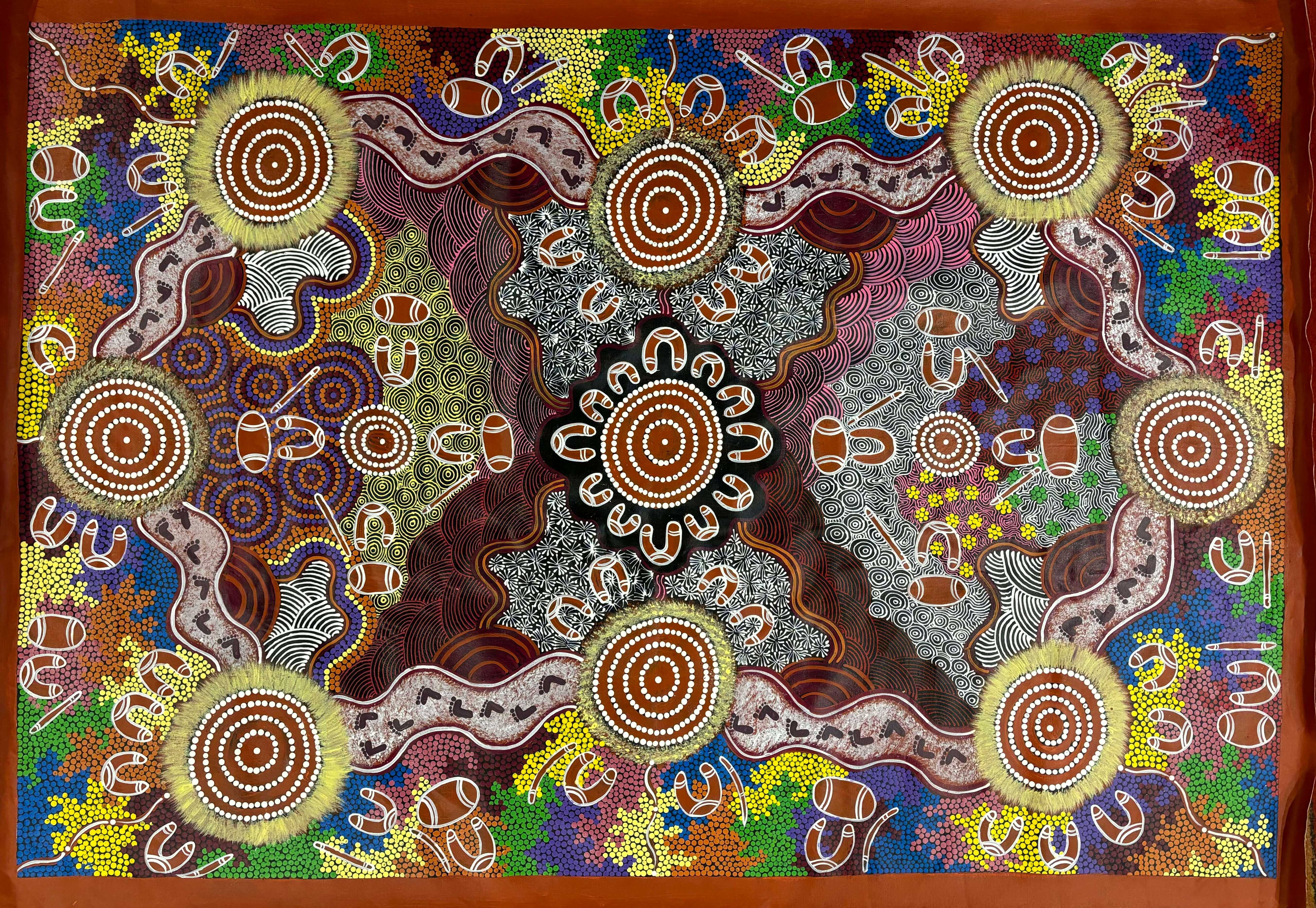
In November 2024, a group of five passionate First Nations educators undertaking Batchelor Intitutes’s Certificate IV in Teaching a First Nations Language presented at the Languages & Cultures Network for Australian Universities (LCNAU) Eighth Biennial Colloquium, held at Sydney University. They were accompanied by one of their lecturers.
These students shared their personal journeys and reflections on language teaching, their training experiences, and the path that led them to become educators. In her presentation, Annette Patrick shared about her motivation for pursuing the Certificate IV, saying, "It's a heavy load to carry [just me teaching at the school]… that's why we want this training to be able to teach our language and culture." April Campbell conveyed her journey through a painting. Dulcie Raggett and Sarah-Lee Fishook shared examples of how they teach their languages to primary-aged students. Janine Turner shared about how important Arrernte has been for her in the workplace. Joyce Turner shared about her language mentors, who have encouraged her to be a strong language teacher.
For some, it was their first time presenting at a conference, and while there were nerves, preparation, practice, and teamwork ensured everyone rose to the challenge. After their presentations, the group reflected on their experiences and took on valuable feedback. This event wasn’t just about sharing knowledge; it was an opportunity to learn, grow, feel inspired by, and deepen our understanding of how Indigenous languages are being taught across Australia.

